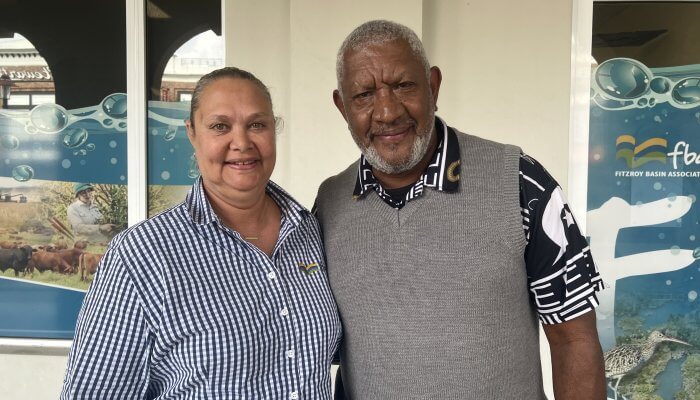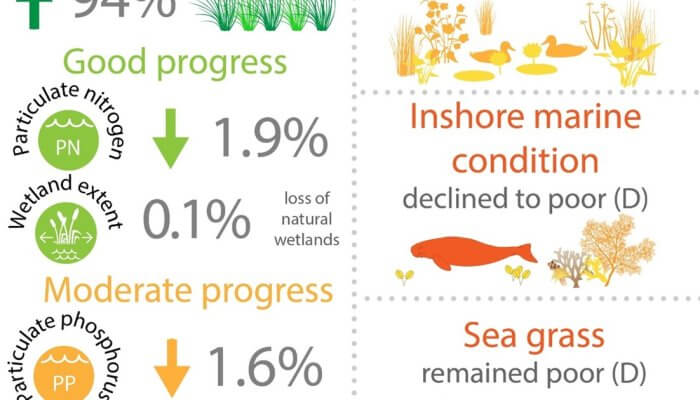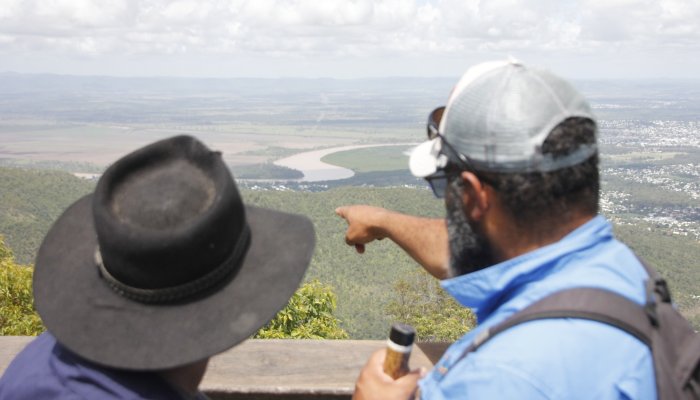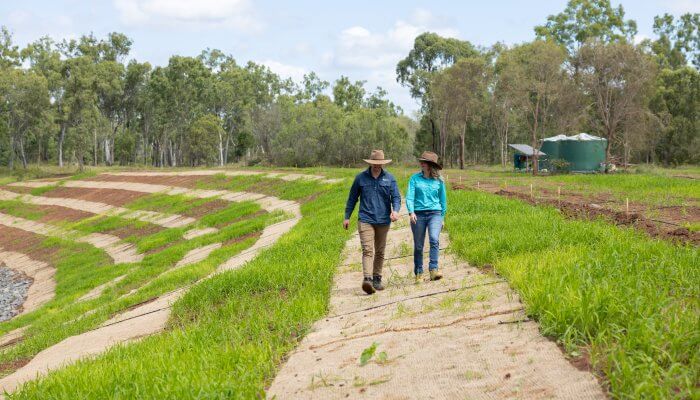Resources library
Resources
Australia’s largest streambank stabilisation project
Project Snapshot - Fitzroy River at Yaamba
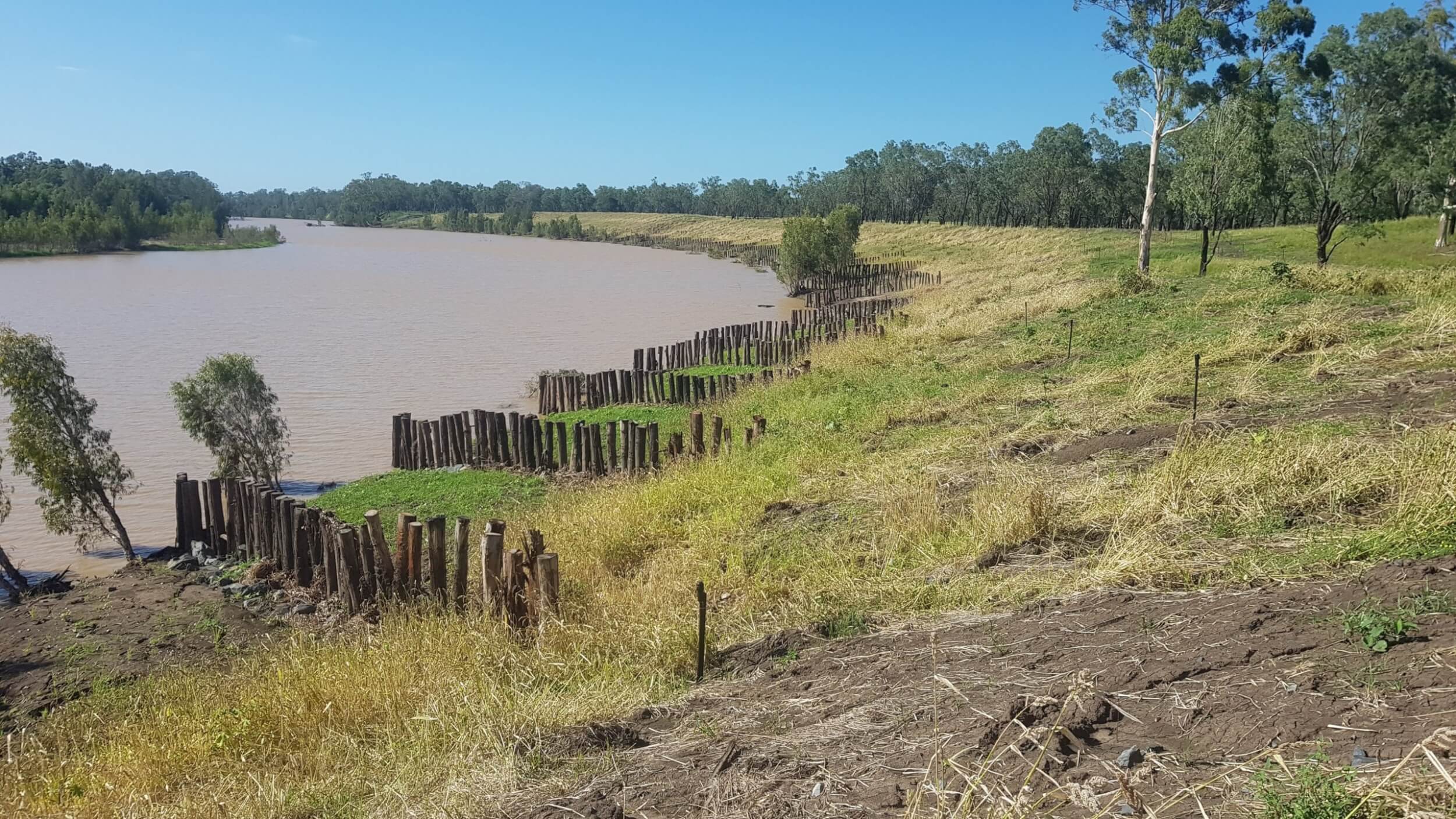
AIM - To stabilise 1.2km of the Fitzroy River which lost 266,000 tonnes of sediment (and 20 metres of bank) during and after Severe Tropical Cyclone Debbie in March 2017.
Reducing Sediment Loss in the Fitzroy Basin
Remote Livestock Management Systems Case Study

Three central Queensland grazing enterprises have trialled an innovative Remote Livestock Management System focusing on reducing sediment loss and increasing productivity. The trail was supported by Fitzroy Basin Association through funding from the Queensland Government’s Reef Water Quality Program Innovation Fund. All project participants were located in the Fitzroy Basin on different land types and with different management systems in place. This case study explores each participant’s experience with the RLMS system.
Carbon Farming Flyer
Carbon Farming for central Queensland Landholders
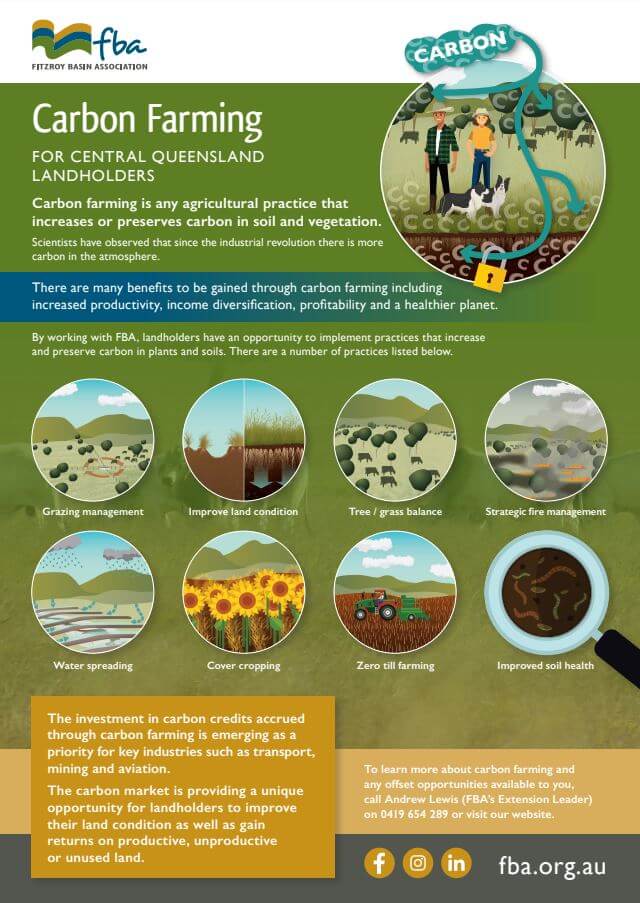
Carbon farming is any agricultural practice that increases or preserves carbon in soil and vegetation. Scientists have observed that since the industrial revolution there is more carbon in the atmosphere. There are many benefits to be gained through carbon farming including increased productivity, income diversification, profitability and a healthier planet. By working with FBA, landholders have an opportunity to implement practices that increase and preserve carbon in plants and soils. The investment in carbon credits accrued through carbon farming is emerging as a priority for key industries such as transport, mining and aviation. The carbon market is providing a unique opportunity for landholders to improve their land condition as well as gain returns on productive, unproductive or unused land.
Gambay – First Languages map
First Languages Australia
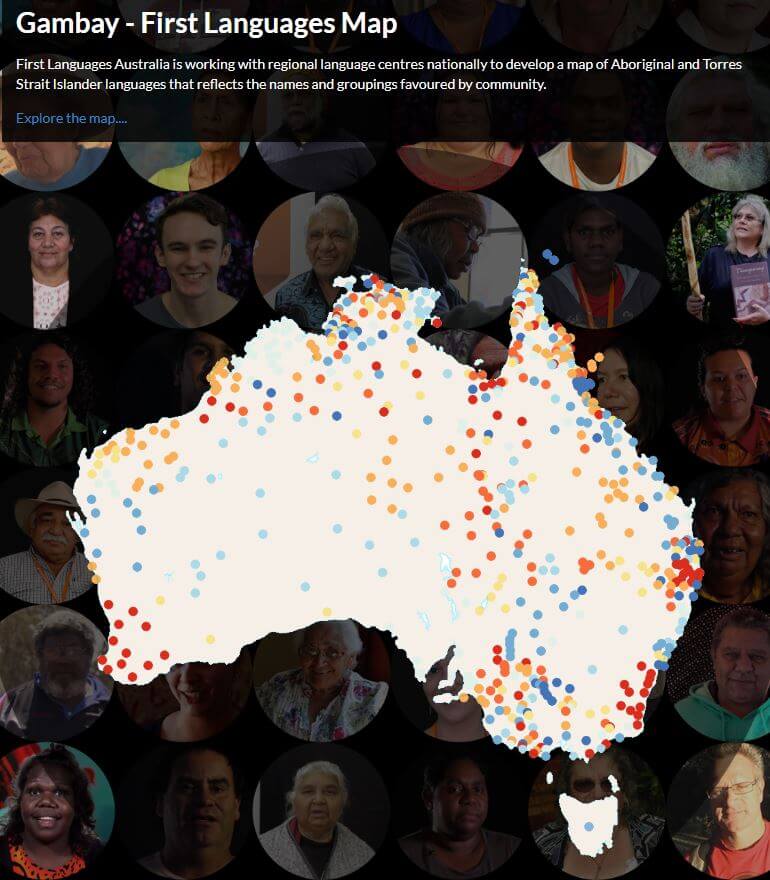
First Languages Australia is working with regional language centres nationally to develop a map of Australian languages that reflects the names and groupings favoured by community.
Paddock to Reef Flyer
How Sediment Affects the Reef

The Fitzroy Basin is the largest catchment draining to the Great Barrier Reef. Pollutants (like sediment) that enter waterways as far inland as Emerald can make their way to the reef, negatively impacting its health.
Grassroots Magazine
Grassroots Magazine
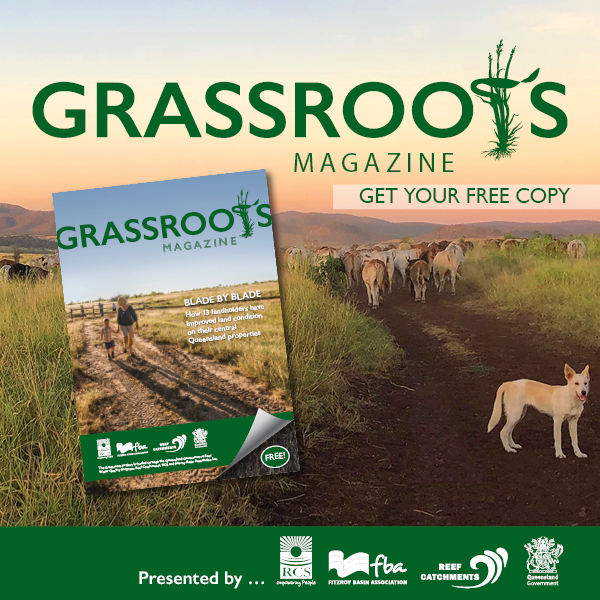
Blade by blade, the Grassroots Magazine illustrates how 13 landholders have improved land condition on their central Queensland properties. Filled with beautiful images and heartfelt stories the magazine showcases what’s achievable in the Fitzroy region through regenerative agriculture and hard work.
On-ground techniques for protecting local ecosystems
Restoration Guide
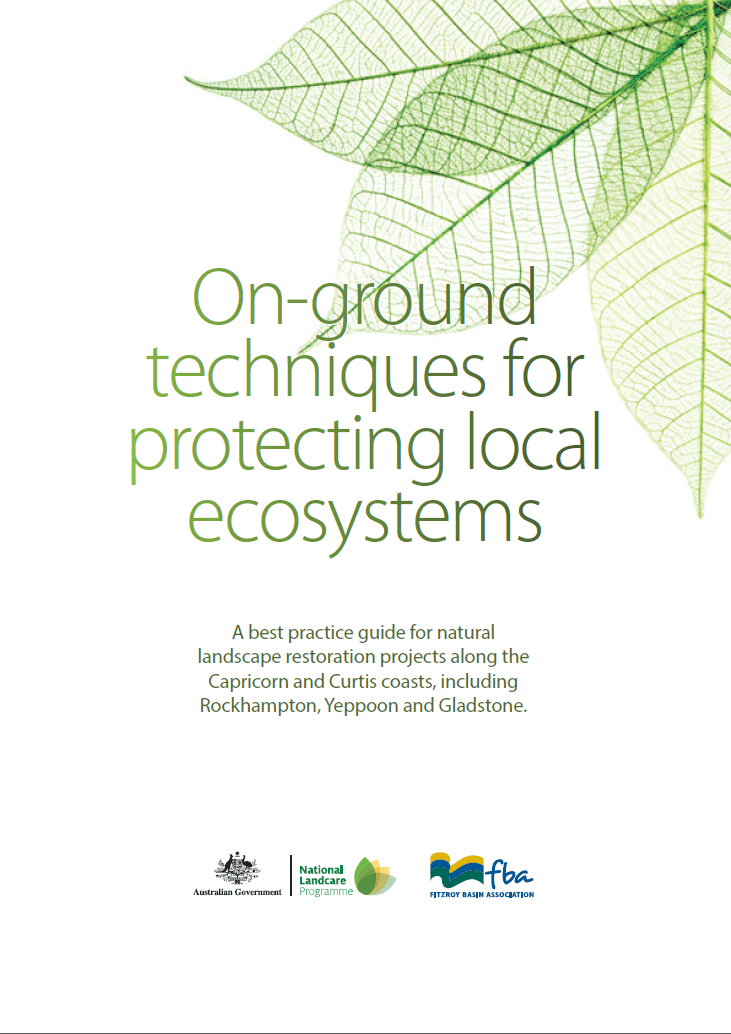
A best practice guide for natural landscape restoration projects along the Capricorn and Curtis coasts, including Rockhampton, Yeppoon and Gladstone.
Protecting and enhancing high value fish habitats across central Queensland’s coast
Protecting and enhancing high value fish habitats across central Queensland’s coast
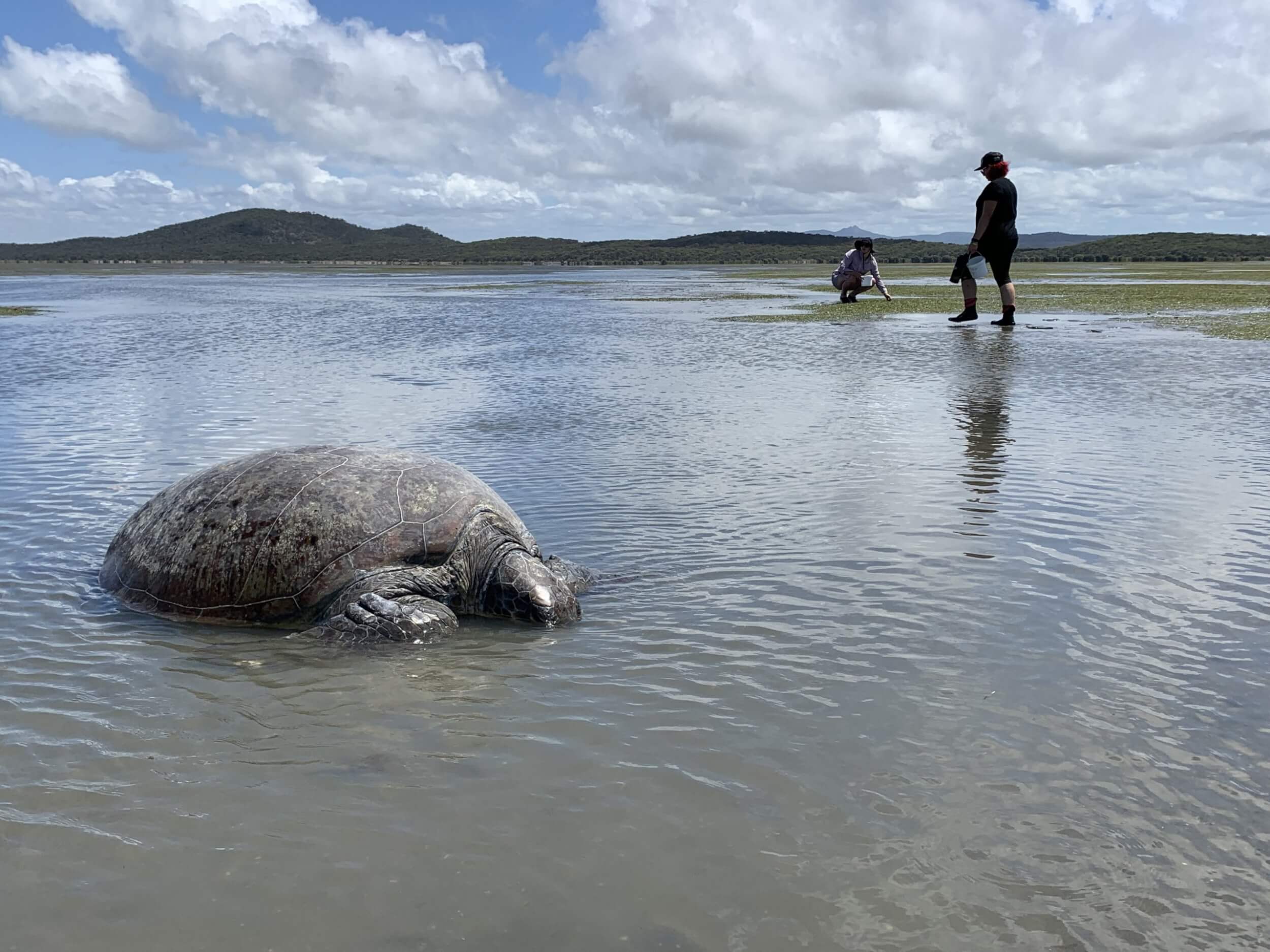
The ‘Protecting and enhancing high value fish habitats across central Queensland’s coast’ project worked to restore seagrass communities (critical fish habitat) that are declining due to habitat loss and destruction.
Saving the Critically Endangered Kroombit Tinkerfrog
Saving the Critically Endangered Kroombit Tinkerfrog
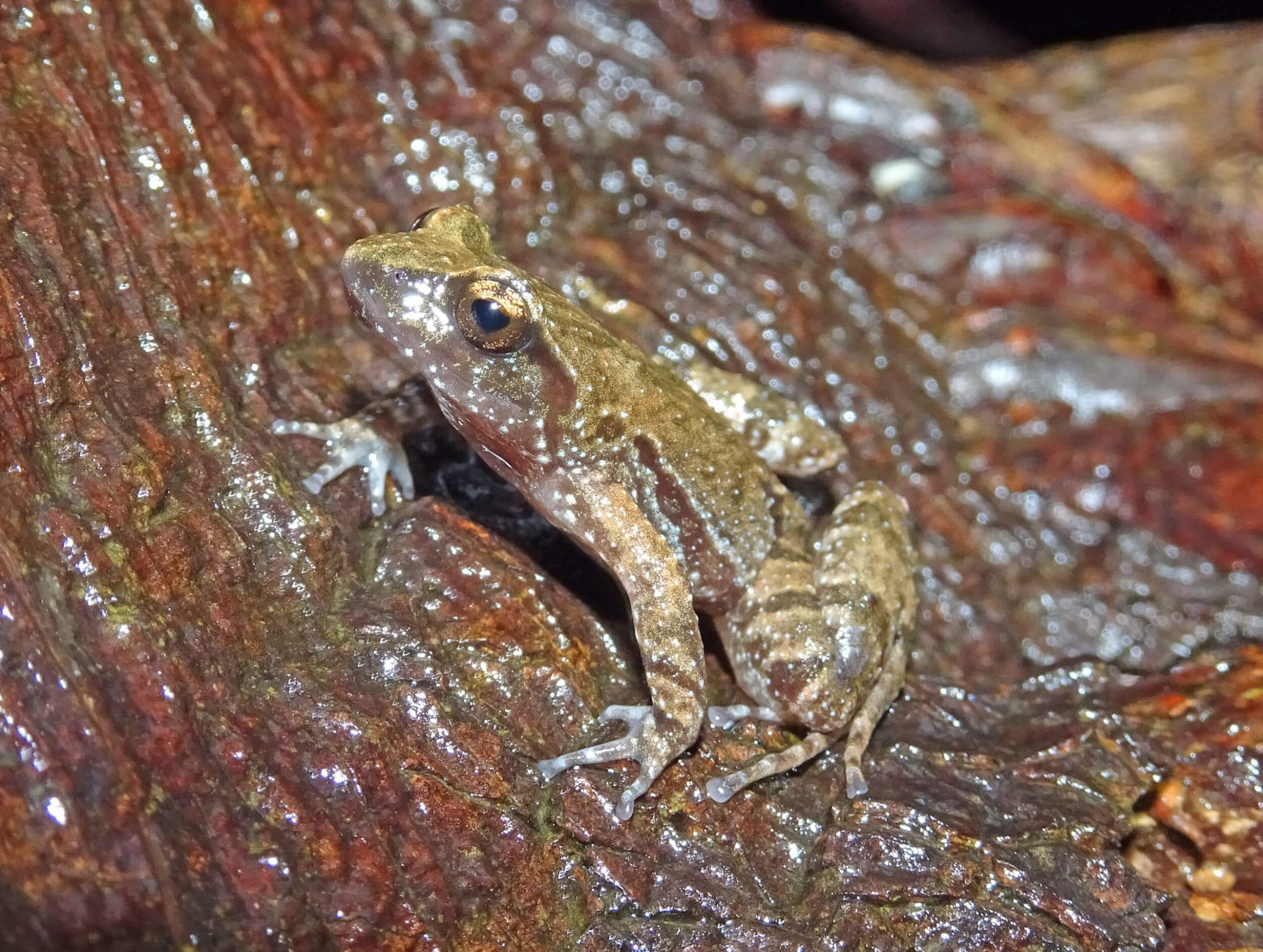
The project focused on the release of genetically diverse, captive-bred frogs into the wild to supplement existing populations and repopulate sites where Kroombit tinkerfrogs have gone locally extinct. There was also a strong focus on habitat and genetic improvement to increase the frogs’ survival odds upon release and protect existing frogs at Kroombit Tops.





